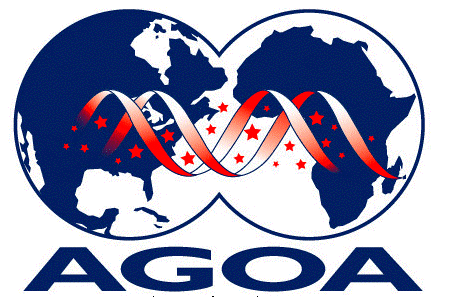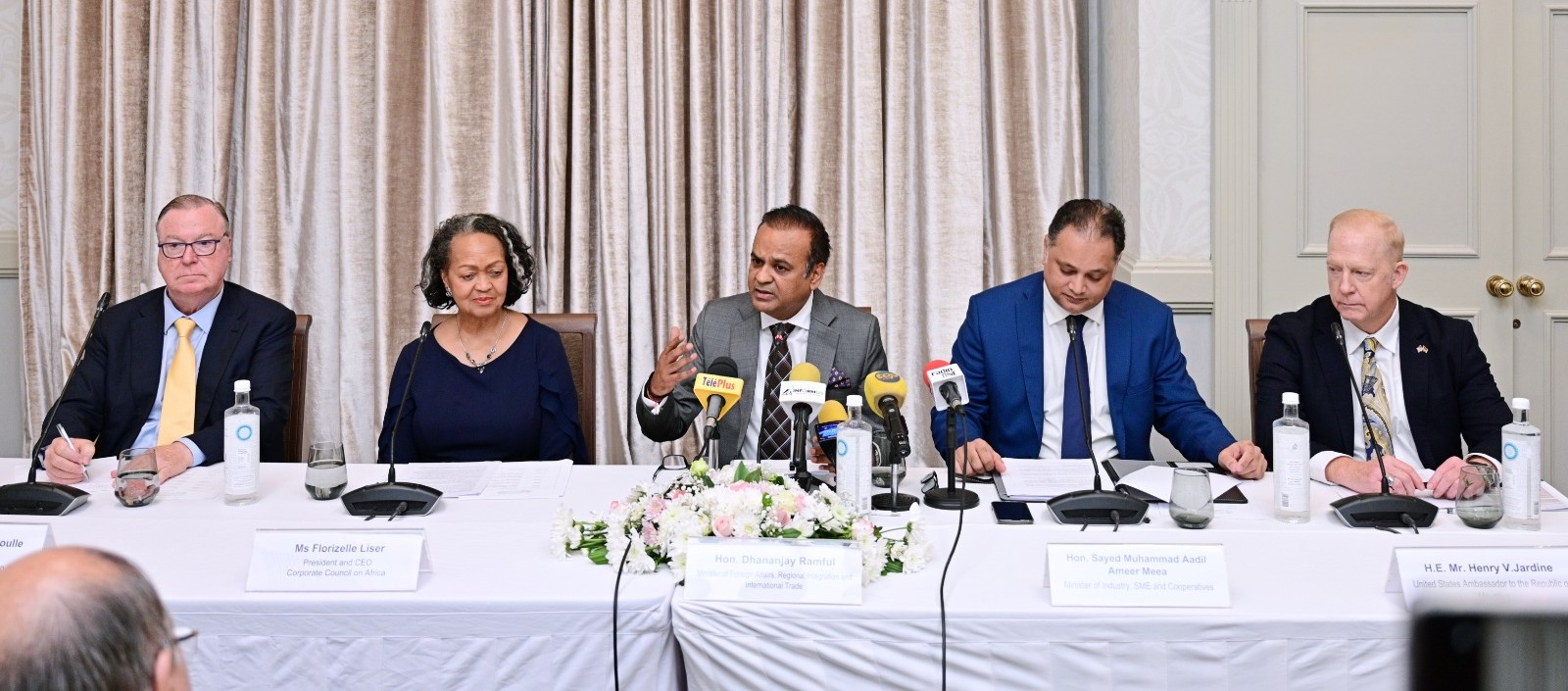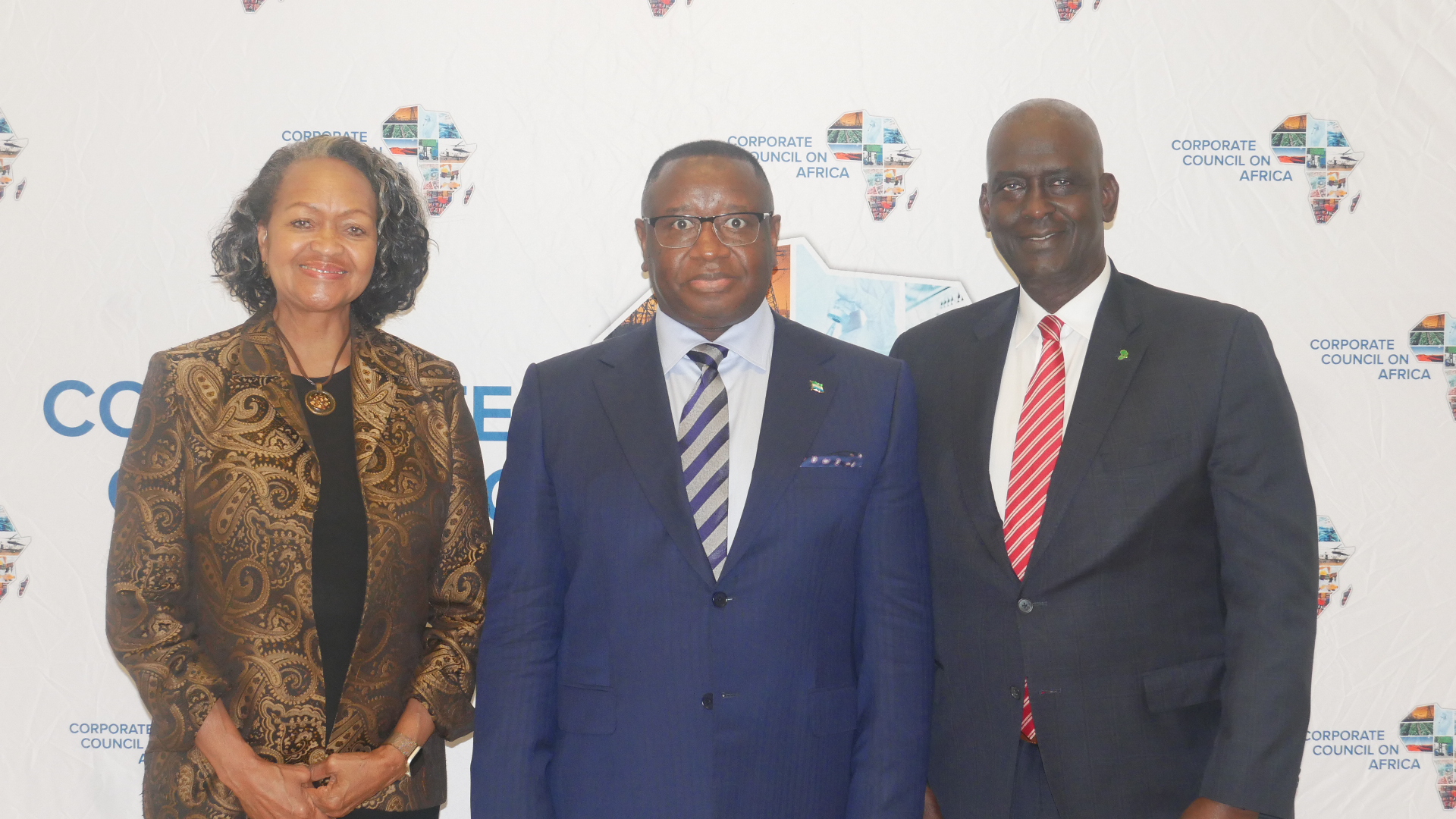U.S.-Africa Business Summit 2024: High-Level Dialogue: Unlocking Africa's Digital Potential - Addressing Challenges & Expanding Opportunities

On Tuesday, May 7th at the 16th U.S.-Africa Business Summit in Dallas, Texas, Corporate Council on Africa hosted a distinguished panel of Heads and Deputy Heads of State and other government leaders with senior corporate executives to discuss the path forward to expanding digitalization in Africa as a core component of economic growth. Moderated by Michelle Chivunga, the Founder & CEO of CCA’s African Digital Transformation Partner Global Policy House, this discussion centered on the key government policies needed to improve the investment climate to spur the attraction to Africa of private sector capital. This high-level dialogue panel featured H.E. President of the Republic of Botswana Dr. Mokgweetsi E.K. Masisi, Hon. Deputy Prime Minister of the Kingdom of Lesotho Nthomeng Majara and Hon. Director of the United States Trade and Development Agency (USTDA) Enoh Ebong speaking on behalf of government. On the private sector side, the panel featured Dr. Thierry Wandji, President & CEO of Summit sponsor Cybastion, and Kazeem Oladepo the Chief Operating Officer of Summit sponsor IHS Nigeria. President Masisi underscored that the Government of Botswana, as is the case for many governments, is working to rapidly expand access to high-speed internet including to its smallest villages, as well as ensure the people of Botswana are afforded education and skills training to be able to successfully put to use evolutions in technology. ‘We anticipate that expanding access will help us in dealing with the challenge of unemployment, and foster societal inclusivity…and when you connect this to the program of the African Continental Free Trade Area, you develop the digital highways to partner with our neighbors in the region, as well as those far afield,” said President Masisi. Botswana, given it’s stability and AAA rating, could be “…used as a conduit to the rest of Africa, and vice versa – not only is your money safest on our shores, we have the Data Protection Act so compliance should not be an issue, and we seek to constantly innovate,” he added. Moderator Michelle Chivunga thanked President Masisi, and underscored her agreement on the importance of leveraging technology to build intra-African as well as international trade. Noting, though, that there remain disparities in access to technology, Ms. Chivunga asked Hon. Deputy Prime Minister Majara for her reflections on what the Kingdom of Lesotho is doing to address the gap in those who are participating in the digital economy, particularly among women and youth. Deputy Prime Minister Majara noted that Lesotho has been focusing on ensuring connectivity and training first for access to and delivery of health services, and next to bolster the education sector. All of this is, per the Deputy Prime Minister, in an effort to bolster trade, especially in the role of government regulatory bodies to provide government services to business and importers. “We cannot afford to lag too far behind, assuredly, because the world is now fully interconnected…so the internationalization and modern technology tap into the technology that is available to us as a kingdom, especially for our young people,” observed the Deputy PM. Turning to the Director of the U.S. Trade and Development Agency, Enoh Ebong, Ms. Chivunga noted the importance of youth and rural communities gaining access to and capabilities to effectively utilize that access, and asked for Ms. Ebong’s views.Director Ebong noted that “Partnerships are keyfor us – we do our work as the U.S. governmentthrough partnerships with the governments, thebusinesses – the people – of Africa.” She continued, “The Digital Transformation with Africa initiative launched by President Biden in 2022 at the U.S.-Africa Leaders’ Summit seeks to partner in this way to rapidly expand digitalization inconcert with our partners.” Ms. Ebong noted that USDA is one agency involved in the DTA initiative and noted the specific efforts of both the U.S. Department of Commerce as well as those ofUSAID. “The African Continental Free Trade Area is showing us and signaling that Africa is thinking regionally and thinking cross-continentally– which is a key for us in working with companies with, or seeking to have, a pan-African presence. ”In response to Ms. Chivunga’s question regarding the situation for private-public partnerships and barriers to private-sector investment in Africa, Dr. Wandji noted that Cybastion’s focus is on cybersecurity in support of expansion of digital access. “When you digitalize, what you are doing is removing physical barriers, physical security and what you’re actually doing is connecting those within your country to those outside, so you are increasing your attack surface,” explained Dr. Wandji. Cybastion, a CCA member company and Summit sponsor, is investing heavily in education in partnership with African governments, to ensure that cyberspace in Africa is at its core secure. “Africa has the chance to build things securely and digitally” added Dr. Wandji. Touching on the aspect of digitalization, and connectivity or the lack thereof in certain cases, IHS Towers’ Chief Operating Officer Mr. Kazeem Oladepo addressed a critical point that has been raised throughout the discussion - “... the most affected are the people that are left behind because the pace of technology is faster than the pace that they are able to have access to it.”Digitalization on the African continent leaves public and private sector leaders to think upon the far too common chicken and egg problem - “... is it access to the technology or is technology itself an enabling tool?” Mr. Oladepo notes that this is an ecosystem that needs to work together. There are challenges as not many people from communities have the requisite level of education to make use of the connectivity being provided. In order to ensure that service providers are incentivized to build solutions tailored to the communities whether it is the use of solar-powered telecommunication towers, there needs to be a conversation around how to ensure the supply and demand side are supporting each other to take a step towards connecting communities digitally and ensuring equal access to digital solutions. Michelle Chivunga acknowledged that human capital in terms of skills development and education contributes significantly to finding the right balance and dug further into other underlying issues regarding investment, mainly financing. The Hon. Majara highlighted Lesotho’s commitment to up lift small businesses, women and their youth with projects including creating a development bank to assist with financing issues. On a similar note, H.E. Dr. Masisi added that Botswana wants to support the startup scene with funds such as risk and incentive capitals. During his remarks, he addressed directly to the private sector leaders to implore them to not fear the perceptions of risk in Africa and assured them that he is committed to addressing any risk factors. To that, Ms. Chivunga emphasized the AfCFTA’s Investment Protocol which help de-risk investments. The U.S. Government recognizes these perceptions as investment prejudices. USTDA partners with companies and funds through grant-based projects to mitigate these risks. And collaborates with local financiers due to their deep understanding of the African landscape. The session concluded with the panelists sharing their views on the future of Africa and its work on connectivity. H.E. Dr. Masisi underlined that Africa is indeed the future with the natural and human resources available. Deputy Prime Minister Majara, agreed, noting that Africa’s untapped potential means it is time for the world to take notice and take the risk to invest in digitalization to which Hon. Enoh Ebong emphasized that this great deal of opportunities is thanks to Africa’s creativity, flexibility, innovation and youth. Dr. Wandji reaffirmed Africa’s potential and shared his experiences, encouraging private-sector investment. Mr. Oladepo wrapped up by stressing Africa’s promising future and the need for sustainable solutions.



